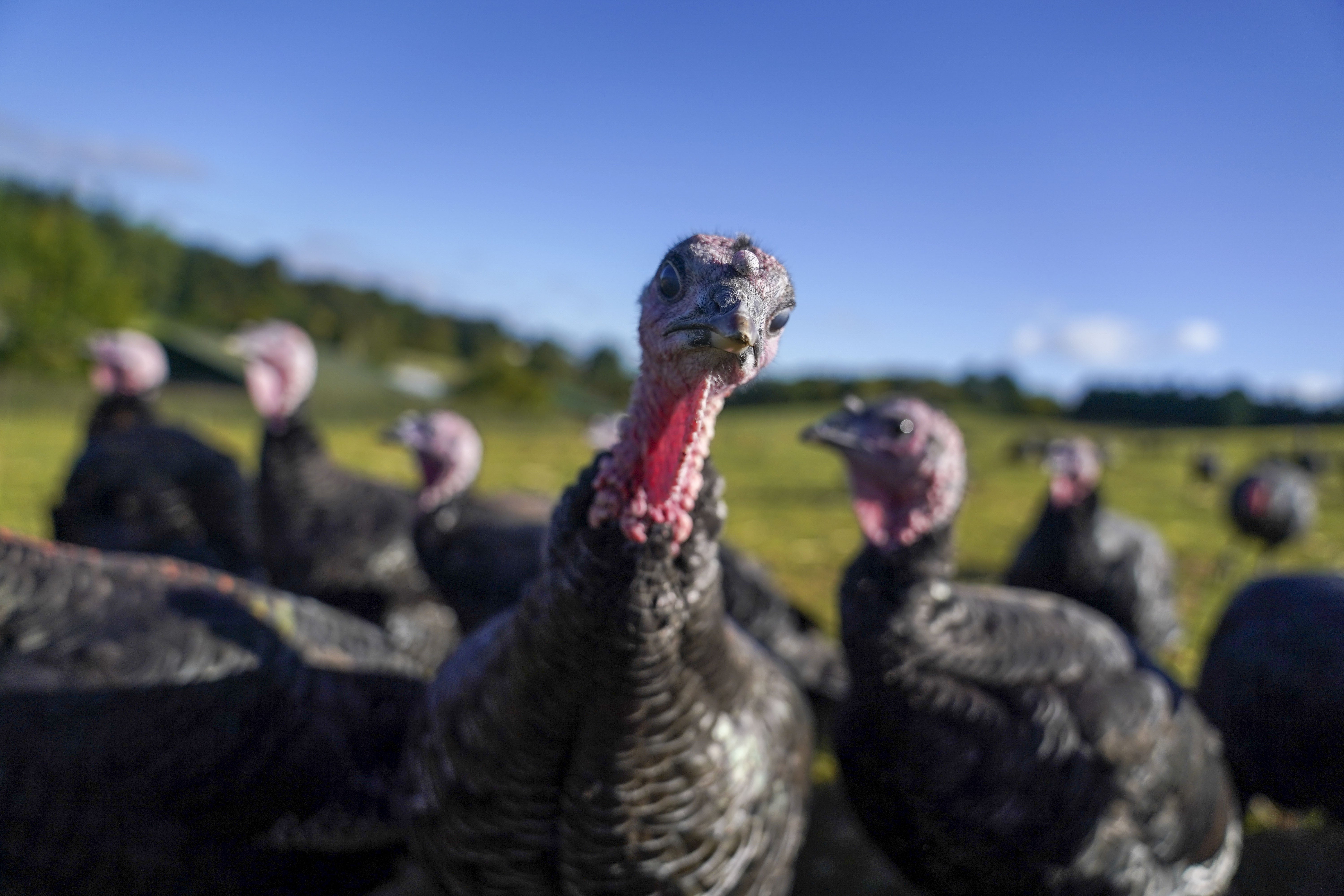Now we have plenty of turkeys - has Christmas been saved?
Without access to enough workers, parts of the UK’s food production will move abroad, making the country more vulnerable to supply chain disruption in future

Positive news about the supply of goods has been a rarity this year, with global disruption coinciding the uniquely British upheaval of Brexit to cause gaps on supermarket shelves and rising prices.
However, we can now rest easy that one key ingredient of the festive celebrations will not be in short supply. There will be plenty of turkeys to go round, according to the poultry industry trade body.
That will come as a relief because the same group had warned earlier in the year that UK production would be down by as much as a fifth this year thanks to a shortage of workers.
Poultry processing work is typically low-paid and had been carried out to a large extent by migrant workers from the EU, many of whom have left the UK as a result of Brexit and the pandemic.
Thanks in part to a temporary visa scheme, turkey producers have been able to get stocks up close to typical levels, although they warn there will be less choice available.
Supermarkets have sought to reassure shoppers that shelves will be well stocked this year, even if there is a little less variety available.
So, has an impending crisis been averted?
Not quite. Shortages of labour and goods are expected to continue for months, hampering the economic recovery. Paul Dales, chief UK economist at Capital Economics, forecasts that shortages will continue until mid-2022 at the earliest.
He predicts that this will drag down UK gross domestic product - a measure of the total amount of goods and services produced - by 1 per cent next year compared to where it would otherwise have been. And he warns there’s a possibility that shortages could be worse than currently forecast.
Beyond that, it appears likely that temporary shocks caused by Brexit and the readjustment to a post-pandemic economy will give way to a more sobering long-term reality.
The ending of freedom of movement means it is more difficult to work in the UK has become a less attractive place to come to find employment. Arguably this was an intentional outcome of Brexit but businesses say that the new system of “controlled” immigration fails to recognise the needs of the UK economy and does not give them access to anything like the number of workers they need.
Only about half of places on the temporary visa scheme for poultry workers have been filled, the British Poultry Council told the BBC.
Uptake of a similar scheme for lorry drivers has been even slower, with haulage industry bosses reporting that EU workers have not been keen on the offer of short-term contracts in the UK when more stable work and better conditions are freely available elsewhere.
With unemployment currently low, there simply aren’t enough workers to fill job vacancies. A record 2.7 million posts are currently unfilled and there are few signs of the situation easing any time soon.
Without access to sufficient labour, the economics of producing food in the UK are far less favourable. Producers of poultry, meat, vegetables, fruit and flowers have all warned that parts of their industries will soon begin to move abroad, taking jobs and businesses with them.
If they are right, the UK will inevitably import more food, be less self-sufficient and more vulnerable to the very disruption in supply chains that is currently causing problems.
Added to this is the looming additional burden of border checks on food imports from the EU which will slow down the transport of goods and make them more expensive.
Shortages of goods and disruption to supply chains are, unfortunately, not just for Christmas.
Join our commenting forum
Join thought-provoking conversations, follow other Independent readers and see their replies
Comments
Bookmark popover
Removed from bookmarks